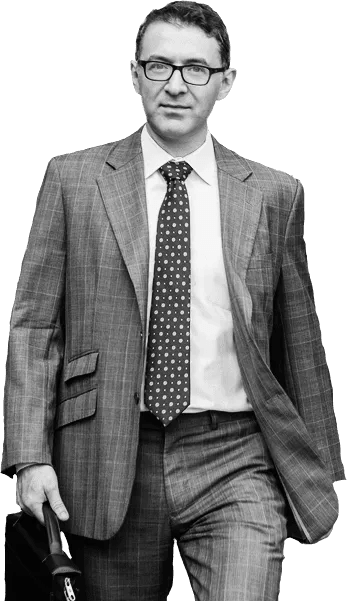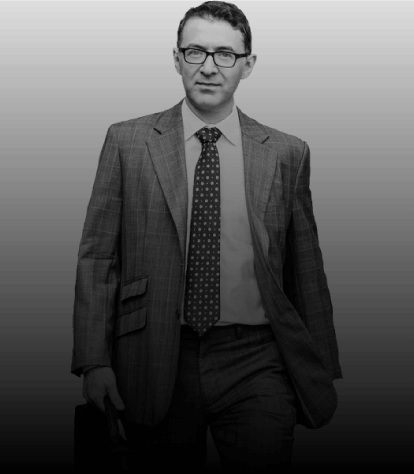PRACTICE AREAS

Professional License Defense

Government Investigations
- U.S. Securities and Exchange Commission (SEC) Investigations and Subpoenas
- Office of Inspector General (OIG) of the U.S. Department of Health & Human Services (HHS)
- Drug Enforcement Administration (DEA)
- Internal Revenue Service (IRS) Criminal Investigations
- Medicaid Fraud Control Unit (MFCU)
- Attorney General’s Investigations
- New York State Office of the Medicaid Inspector General (OMIG)
- NYC Department of Investigations
- NYS Department of Health
- Subpoenas
NYC CRIMINAL DEFENSE LAWYERS
Norman Spencer Law Group PC is among the best teams of criminal defense attorneys in entire New York. This law firm was established in 2006, and since then its criminal lawyers have gained an excellent reputation of being able to successfully handle cases of any scale and complexity.
The NYC criminal attorneys at Norman Spencer Law Group criminal defense group provide effective and personalized services to clients facing criminal investigations and prosecution in state and federal courts. We have over 70 years of combined experience practicing criminal law. Over the years, our team of trial lawyers has built a track record for taking on complicated cases, and winning them. As established criminal defense attorneys and your law firm, our goal is to help you get the best possible outcome. That means being creative, and extremely diligent, on how we use the law – to fight against the crime you are accused of doing. We are experienced in successfully handling almost every type of criminal case in all New York Courts and in federal cases across the nation. We take cases to jury, if necessary, and deliver the best possible results. Clients who work with us choose us because they need a defense team that understands how to win!
Whether you are facing criminal prosecution in connection with a state or federal crime, or are in jeopardy of losing a physicians license or nursing license, Norman Spencer and his fellow criminal lawyers with this New York firm will be more than willing to represent you in all encounters with the officials. Check out the list of our practice areas below and click on “View all” to see more of them.
Federal Crimes
Our federal criminal defense lawyers in New York have dealt with basically any existing law area, and therefore you may rest assured we have the expertise and resources to resolve your case successfully. If you’re investigated or accused of committing a federal crime, contact us today. If necessary, we can travel to you – wherever you are in the country.
State Crimes
Our New York City criminal defense attorneys are fully equipped to handle criminal defense for any cases, ranging from petty misdemeanors to serious felonies. We have provided criminal defense for both private individuals and corporations in hundreds of cases. What really helps us achieve the goals set is out of the box thinking – which we use to reach the best possible outcome.
Government investigations
We handle investigations held by the NYS authorities and federal investigative agencies. Whether you’re a business professional investigated for securities fraud by the SEC or a healthcare provider facing Medicaid exclusion, Norman Spencer and his colleagues are ready to help. We also encourage you to take advantage of the free info resources on our website.
FAQ
The primary focus of our NYC criminal lawyers is to inform you about the best and worst case scenarios and to educate you about what your situation is and what to expect. Check out this list of the most frequently asked questions about criminal defense.
If you’re charged with a crime that implies severe criminal penalties and you don’t have the necessary resources to afford legal representation, you have the right to be appointed a free public defender. You can also hire a private attorney at your own expense. It is not uncommon for individuals to use a court assigned lawyer. In some cases, though, like in cases of merchant cash advance fraud, or small business loan fraud, it might make more sense to hire your own private attorney. Public defenders often have a large number of clients, and thus are unable to dedicate a lot of time to any one particular case. This means, if you have a complicated case – you may not get the best outcome by working with a public defender.
On the other hand, private lawyers charge you a fee for their services. And given they are interested in delivering the best possible result, as their reputation as a lawyer and future law practice depend on how successfully they deliver legal representation services, they are bound to focus on fewer cases at a time. That means a private attorney would dedicate a larger amount of time to you than if you took a court-appointed defense lawyer. In case you are accused of some petty crime, such as shoplifting, taking a public defender may make sense if you are getting a satisfying plea agreement. If you are accused of a felony crime, you should consider it mandatory to hire a private NYC criminal attorney.
Private New York City criminal defense attorneys typically charge fees based on their hourly rates, or charge a retainer fee. The type of fee depends on the scale, expected length of prosecution and complexity of a particular case. It is advisable that you hire a legal counsel by paying a retainer fee. This will limit your total expenses, and encourage the attorney to settle the case without any delay. When you hire an attorney on an hourly basis, your expenses can grow infinitely. It means you could potentially see a large bill!
If you have a complex case, such as a federal case, or a felony, typically your overall fees will be much higher than a petty misdemeanor, or something like that.
Admitting guilt may seem like the right thing to do. However, it can complicate your defense. The District Attorney’s job is not to be empathetic with the defendant. Prosecutors get more points on their resume by reaching a criminal conviction. If you admit guilt, you make their job easier, and consequently – hurt your chances of getting a lower punishment. If you admitted something while in police custody, like admitting you are carrying CBD oil, marijuana, etc, make sure to inform your attorney – so that they may be able to help you.
This is a very popular question. Many people watch Law and Order and have heard the Miranda rights read in Hollywood. Part of those Miranda rights is the right to remain silent. This right is the cornerstone of the US legal system, and helps protect you against anything self-incriminating that you may unintentionally say. There are exceptions to the Miranda rights, which you need to understand.
For example, if you start answering questions – but then stop, prosecutors may use it against you in court. They may argue that you stopped talking because you were at fault or had illegal items in your possession, such as glass bongs. Therefore, you had better remain silent before and after the Miranda rights are read to you.
If and when a person is taken into custody, the police officers are required to read them the Miranda rights. If they don’t, an attorney may be able to help you even if you have said something incriminating. If the police interrogate you without arresting you – they are not required to ready you your rights. This is because the only time Miranda rights are read, is when you are being taken into official police custody.
A criminal record is a burden for anyone, as it, first of all, means being served criminal penalties, and besides it affects the private life of the convicted person and their family long after the sentence was served as well as makes it harder to find employment, rent property or request a bank loan. Is there anything you can do to lessen the impact of a criminal record on your life? The answer is yes, you can. There are some legal ways to eliminate all or almost all records of the crime.
However, in NYS a criminal record cannot be expunged, or in other words completely erased. Still, in some cases certain charges can be sealed, which means that this information will only be available to certain authorized people. Fortunately, this list doesn’t include most employers, unless it is an position that requires you to carry a gun or just a law enforcement agency. Also, such data as your fingerprints, palmprints, booking photos, samples of DNA and all official records, and property will be destroyed.
Whether or not a case can be sealed depends on a number of factors, and each specific case is examined closely before the judge makes a decision – hiring an attorney can help. Moreover, some cases are automatically sealed after the appropriate amount of time passes.
How to Seal a Criminal Record?
You need to file an application at the court where you were prosecuted. Contact the court, and clerks will explain to you what documents you have to provide, which will depend on your specific situation.
A person facing criminal charges may be sentenced to prison time and steep fines. Besides, they may encounter difficulties retaining their current job as well as finding employment in the future. However, these scenarios may potentially be avoided by taking advantage of the services offered by a criminal lawyer. There are several ways a criminal defense lawyer can help.
Expertise Within the Law
By attempting to represent themselves on their own, defendants jeopardize their chances of reaching a satisfactory settlement. As a matter of fact, some judges may not necessarily allow it and even if they do, this is still a bad judgment call. Those that do not have experience within the law will find it difficult at best to understand the legal jargon used within a courtroom, let alone have the knowledge and judgment to ensure they are being treated fairly.
Saving Time and Money
A deterrent for some is the costs associated with hiring representation. What the accused may not understand is that hiring a criminal attorney can actually save time and money. A lawyer may be able to eliminate or reduce fines and get the case taken care of quickly, as court costs, and hard money loans taken to pay, can quickly add up. When comparing the costs to freedom, fines and court costs, hiring an attorney is not so expensive.
Best Possible End Result
The most desirable outcome for all defendants is to get the case dismissed with no criminal or civil charges applied. But this is not always possible. In some cases, making a plea deal may actually be the best option. However, this does not mean that you will be offered the ideal terms. A legal counsel can work with the courts and prosecution to find a resolution that will work for all parties involved. For some defendants, this can even eliminate jail time or reduce the severity of the charge.








